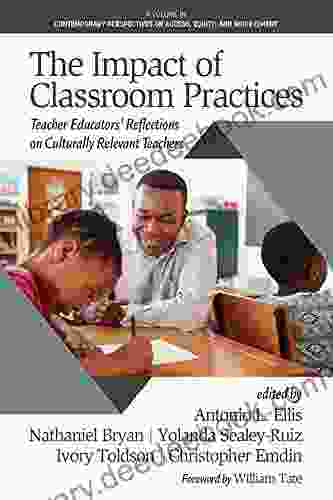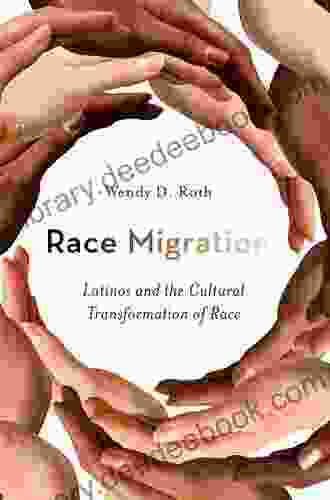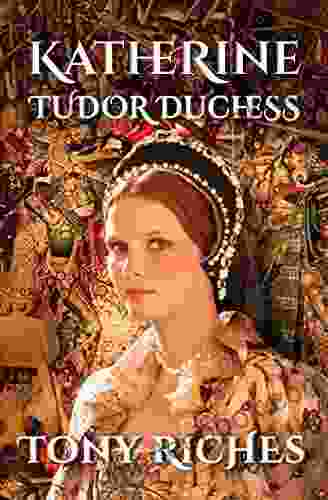Latinos and the Cultural Transformation of Race: Navigating Identity, Representation, and Belonging in a Shifting Society

:
The cultural landscape of the United States is undergoing a profound transformation, driven in large part by the growing diversity of the population. Latinos, who now constitute the largest minority group in the country, are at the forefront of this shift, challenging traditional notions of race and ethnicity and reshaping the very fabric of American society.
Latinos come from a diverse array of backgrounds, including individuals of Mexican, Puerto Rican, Cuban, Dominican, Central American, and South American descent. They bring with them a rich tapestry of cultures, languages, and traditions, which are infusing American society with new perspectives and experiences.
4.7 out of 5
| Language | : | English |
| File size | : | 2371 KB |
| Text-to-Speech | : | Enabled |
| Screen Reader | : | Supported |
| Enhanced typesetting | : | Enabled |
| Word Wise | : | Enabled |
| Print length | : | 270 pages |
The cultural transformation of race has profound implications for how we define ourselves, how we interact with others, and how we envision the future of our nation. Latinos are leading the way in this evolution, redefining what it means to be American and creating a more inclusive and representative society for all.
Identity and Representation:
One of the most significant aspects of the cultural transformation of race is the changing landscape of identity and representation. For centuries, race was defined in the United States through a rigid binary system of Black and White. However, the growing diversity of the Latino population has challenged this outdated paradigm, forcing us to grapple with the complexities of multiracial and multiethnic identities.
Latinos do not fit neatly into traditional racial categories. They come from a mix of European, African, and Indigenous backgrounds, creating a unique blend of physical characteristics and cultural heritage. This diversity is reflected in the way Latinos self-identify, with many choosing to identify as both Latino and White, Black, or Native American.
The rise of Latino identity has also led to a greater demand for representation in all spheres of society, from the media to the workplace to the political arena. Latinos are breaking down barriers and demanding to be seen and heard, challenging the long-standing marginalization and invisibility of their community.
Challenging Stereotypes and Redefining Narratives:
Traditionally, Latinos have been portrayed in media and popular culture through a narrow and often stereotypical lens. They have been depicted as criminals, immigrants, and low-wage workers, reinforcing negative stereotypes and perpetuating harmful myths.
However, the growing visibility and influence of Latinos are challenging these stereotypes and redefining the narratives surrounding their community. Latino artists, writers, filmmakers, and activists are creating their own stories, presenting a more nuanced and multifaceted portrayal of their lives and experiences.
These new narratives are not only breaking down stereotypes but also shaping a more inclusive and authentic representation of Latino culture. They are highlighting the diversity of the Latino community, celebrating their contributions, and challenging the dominant narratives that have for too long marginalized and misrepresented them.
The Intersection of Race, Class, and Gender:
The cultural transformation of race cannot be separated from the intersections of class and gender. Latinos face unique challenges and experiences based on their socioeconomic status and gender identities.
Low-income Latinos are disproportionately affected by poverty, unemployment, and lack of access to education and healthcare. They are also more likely to be criminalized and incarcerated. These systemic inequalities create barriers to opportunity and perpetuate cycles of poverty and disadvantage.
Latinas face additional challenges, including gender discrimination and violence. They are often underrepresented in leadership positions and paid less than their male counterparts. They are also more likely to be victims of sexual harassment and assault.
Addressing the intersectional challenges faced by Latinos requires a comprehensive approach that tackles race, class, and gender inequality simultaneously. It means creating policies that promote economic opportunity, education, and healthcare access for all Latinos, while also addressing the unique needs of low-income Latinos and Latinas.
The Future of Race and Identity in America:
The cultural transformation of race is a complex and ongoing process. It is shaped by demographic shifts, social movements, and the evolving nature of our society. As the Latino population continues to grow and diversify, it will continue to have a profound impact on the way we think about race and ethnicity in America.
Latinos are not simply a new minority group; they are a vibrant and diverse force that is reshaping the cultural landscape of the United States. They are challenging traditional notions of race, redefining narratives, and creating a more inclusive and representative society for all.
The future of race and identity in America is uncertain, but it is clear that Latinos will play a central role in shaping it. Their experiences, perspectives, and aspirations will continue to transform our understanding of race, creating a more just, equitable, and culturally rich society for all.
:
The cultural transformation of race is a defining moment in American history. Latinos are at the forefront of this transformation, challenging traditional paradigms and redefining the very meaning of race and identity. By embracing the diversity of the Latino community, challenging stereotypes, and addressing the intersections of race, class, and gender, we can create a more just and equitable society for all.
Latinos are not simply the future of America; they are shaping the present. Their voices, experiences, and aspirations are essential to building a more inclusive, representative, and vibrant nation for generations to come.
4.7 out of 5
| Language | : | English |
| File size | : | 2371 KB |
| Text-to-Speech | : | Enabled |
| Screen Reader | : | Supported |
| Enhanced typesetting | : | Enabled |
| Word Wise | : | Enabled |
| Print length | : | 270 pages |
Do you want to contribute by writing guest posts on this blog?
Please contact us and send us a resume of previous articles that you have written.
 Book
Book Novel
Novel Page
Page Text
Text Reader
Reader Paperback
Paperback Magazine
Magazine Newspaper
Newspaper Sentence
Sentence Bookmark
Bookmark Shelf
Shelf Bibliography
Bibliography Foreword
Foreword Synopsis
Synopsis Annotation
Annotation Scroll
Scroll Tome
Tome Bestseller
Bestseller Classics
Classics Library card
Library card Narrative
Narrative Biography
Biography Autobiography
Autobiography Memoir
Memoir Thesaurus
Thesaurus Resolution
Resolution Catalog
Catalog Card Catalog
Card Catalog Stacks
Stacks Periodicals
Periodicals Study
Study Research
Research Reserve
Reserve Journals
Journals Rare Books
Rare Books Interlibrary
Interlibrary Dissertation
Dissertation Storytelling
Storytelling Theory
Theory Textbooks
Textbooks Max Reger
Max Reger Christie Taylor
Christie Taylor Susan Pinner
Susan Pinner Leslie Hooton
Leslie Hooton Ellen Murphy
Ellen Murphy Jess Lebow
Jess Lebow Nicholas Sparks
Nicholas Sparks Iain Bamforth
Iain Bamforth Mary Connolly
Mary Connolly Elisa Gaudet
Elisa Gaudet Pedro Murino Almeida
Pedro Murino Almeida Jennifer M Lane
Jennifer M Lane Sam Bing
Sam Bing Eric Auxier
Eric Auxier Jennifer Haley
Jennifer Haley Stephanie Rowe
Stephanie Rowe Bela Zombory Moldovan
Bela Zombory Moldovan Jean Vincent Blanchard
Jean Vincent Blanchard Third Cousins
Third Cousins Eric Lerner
Eric Lerner
Light bulbAdvertise smarter! Our strategic ad space ensures maximum exposure. Reserve your spot today!

 Ian McEwanWonder Woman Pictureback: A Captivating Journey into the Legendary Amazonian...
Ian McEwanWonder Woman Pictureback: A Captivating Journey into the Legendary Amazonian...
 Vincent MitchellOwl Counted Cross Stitch Patterns: A Journey into Intricate Stitched Delights
Vincent MitchellOwl Counted Cross Stitch Patterns: A Journey into Intricate Stitched Delights Ira CoxFollow ·10.5k
Ira CoxFollow ·10.5k Jordan BlairFollow ·18.3k
Jordan BlairFollow ·18.3k Ashton ReedFollow ·10.8k
Ashton ReedFollow ·10.8k Garrett BellFollow ·13.9k
Garrett BellFollow ·13.9k Douglas FosterFollow ·4.4k
Douglas FosterFollow ·4.4k Octavio PazFollow ·14.9k
Octavio PazFollow ·14.9k Dawson ReedFollow ·5.5k
Dawson ReedFollow ·5.5k Terence NelsonFollow ·9.1k
Terence NelsonFollow ·9.1k

 Ralph Ellison
Ralph EllisonHealth Care Global Viewpoints: Samantha Whiskey
Samantha Whiskey is a global health...

 Gabriel Garcia Marquez
Gabriel Garcia MarquezTeacher Educators' Reflections on Culturally Relevant...
In today's...

 Levi Powell
Levi PowellSustainable Project Management: The GPM Reference Guide...
In today's rapidly changing world,...

 Isaac Bell
Isaac BellThe Captivating World of "Dreaming Awake Falling Under"
A Journey Through...

 Clarence Brooks
Clarence BrooksGovernance Regulations Valuations Mergers And...
In today's complex and ever-changing...
4.7 out of 5
| Language | : | English |
| File size | : | 2371 KB |
| Text-to-Speech | : | Enabled |
| Screen Reader | : | Supported |
| Enhanced typesetting | : | Enabled |
| Word Wise | : | Enabled |
| Print length | : | 270 pages |










